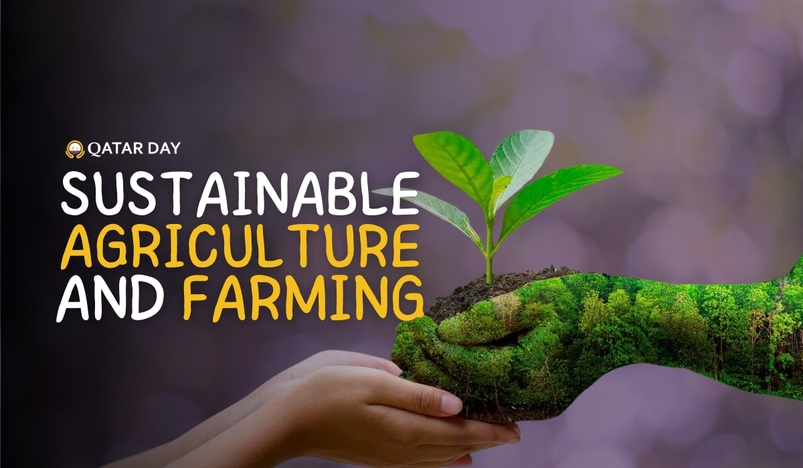
Sustainable agriculture is farming in sustainable ways that meet society's present food and textile needs, without compromising the ability of current or future generations to meet their needs. It can be based on an understanding of ecosystem services. There are many methods to increase the sustainability of agriculture.
Sustainable agriculture is a philosophy that aims to cultivate the land in a way that preserves and improves it for future generations. It goes beyond simple farming methods. Fundamentally, sustainable agriculture seeks to provide for the present demands for food, fiber, and other resources while ensuring long-term environmental health and community well-being.
Conservation of Resources: Let's be smart about using water, soil, and energy so that we don't waste anything and don't harm the environment.
Biodiversity: Biodiversity means growing different types of crops. This helps farms have different varieties of crops and keep the soil fertile.
Economic Viability: Sustainability is not just for the planet but also makes money for farmers and helps communities. It seeks to create thriving rural communities.
Sustainable agriculture employs a range of methods that prioritize long-term environmental health and community well-being. Here are some key approaches:
Crop Rotation: Crop rotation involves growing different crops in the same area in sequential seasons. This helps break pest and disease cycles, improves soil fertility, and reduces the need for chemical inputs.
Cover Cropping: Cover crops, such as grass, are planted when the primary crop is not growing. They protect the soil from erosion, add nutrients, and enhance soil structure.
Agroforestry: Agroforestry is growing trees and shrubs along with crops. This not only provides additional income sources but also enhances biodiversity, improves soil fertility, and offers shade for crops.
Conservation Tillage: By reducing or eliminating traditional plowing methods, conservation tillage minimizes soil disturbance. This helps retain moisture, prevent erosion, and maintain soil structure.
Integrated Pest Management (IPM): IPM combines biological, cultural, and mechanical practices to manage pests effectively. This approach reduces reliance on synthetic pesticides and promotes natural predators.
Precision Farming: Precision farming employs technology such as GPS-guided machinery and sensors to optimize inputs like water, fertilizers, and pesticides. This enhances efficiency and reduces environmental impact.
Organic Farming: Organic farming avoids synthetic pesticides and fertilizers, focusing on natural methods to enhance soil fertility and control pests. It also promotes animal welfare and biodiversity.
Agroecology: Agroecology views agriculture as an ecological system and applies ecological principles to farming practices. It emphasizes the interconnectedness of farming, ecology, and society.
Although it presents a promising future, sustainable agriculture is difficult. Farmers may find it difficult to switch from conventional methods; it takes knowledge, resources, and a mental adjustment. Infrastructure and logistical issues arise when sustainable practices are scaled up to meet the world's food demand.
Agriculture's future depends on finding a balance between sustainability and productivity. We can encourage farmers to adopt and spread sustainable practices by funding research, educational initiatives, and policies that support them. It is a journey toward a food system that supports the Earth and its harvests for future generations and is more resilient, egalitarian, and ecologically friendly.
.jpg)
Qatar Secures Place Among the World's Top 10 Wealthiest Nations
.jpg)
Hamad International Airport Witnesses Record Increase in Passenger Traffic

Saudi Arabia: Any visa holder can now perform Umrah

What are Qatar's Labour Laws on Annual Leave?
Leave a comment